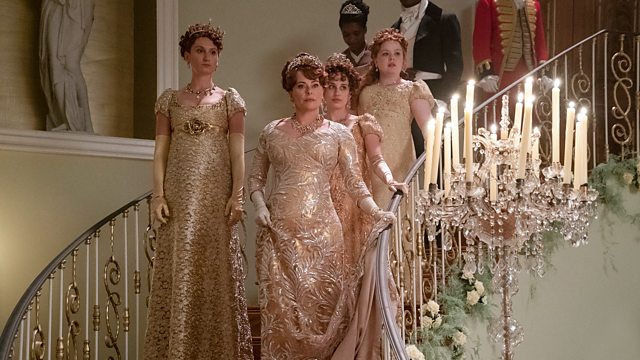The Georgians
Penelope Corfield, Tristram Hunt and Philip McCann discuss Georgian ingenuity and the regional economy, with Tom Sutcliffe.
Forget the Victorians, the Georgian era is having its moment. Regencycore, a fashion style inspired by the Netflix period drama Bridgerton was shortlisted for Word of the Year 2021, and there will be more frocks and 18th century gossip when the television series returns in the Spring.
In The Georgians the historian Penelope Corfield explores all aspects of 18th century life, from politics and empire to culture and society, science and industry. She tells Tom Sutcliffe that Britain at the time was often seen as both a sentimental and enlightened place, where frippery and satire sat side by side.
Before the Industrial Revolution The Staffordshire potter Josiah Wedgwood exemplified the era’s entrepreneurial spirit. He was, according to Tristram Hunt’s biography, The Radical Potter, the Steve Jobs of the 18th century. His innovative designs and marketing strategies made his wares popular throughout the country and further afield, and he was instrumental in building the infrastructure to enable the region to flourish economically.
What could today’s policies to ‘level up’ the regions learn from the 18th century, and Wedgwood’s championing of his home town. Professor Philip McCann is Chair in Urban and Regional Economics at the University of Sheffield. He argues that during the last century the system of localised finance was lost as the country became highly centralised. This has had a serious impact on poorer regions and smaller local firms, and today the UK has some of the worst regional inequality in the world.
Producer: Katy Hickman / Natalia Fernandez
Photo Credit: LIAM DANIEL/NETFLIX
Bridgerton, Series 2 (L to R) Bessie Carter as Prudence Featherington, Polly Walker as Lady Portia Featherington, Harriet Cains as Philip
Last on
More episodes
Previous
Broadcasts
- Mon 7 Feb 2022 09:00����ý Radio 4
- Mon 7 Feb 2022 21:30����ý Radio 4
Podcast
-
![]()
Start the Week
Weekly discussion programme, setting the cultural agenda every Monday


